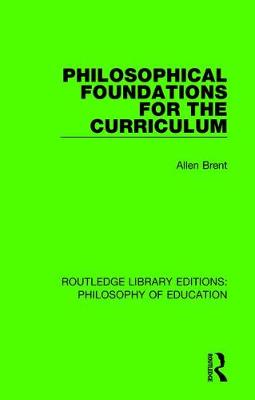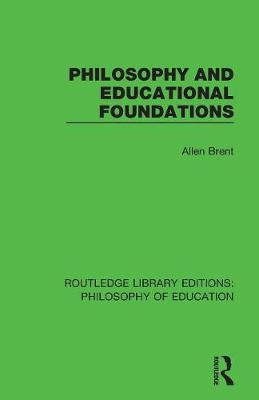Routledge Library Editions: Philosophy of Education
2 primary works
Book 3
In this book, first published in 1978, Allen Brent sets out to explore some of the questions raised by theorists and philosophers regarding curriculum. He starts by investigating whether all knowledge is the product of social conditions of particular times or places, or whether there is some kind of universal framework implicit in the claims to knowledge which men make. He looks at the work of Plato, Newman, Freire and Hirt and how, each of them in a strikingly different way, they have tried to give us an objective basis for curriculum judgements and how the validity of that basis is attacked by contemporary sociologists of knowledge. This book is aimed primarily at students who are concentrating on the philosophy of education or curriculum theory.
Book 4
What models in the social sciences underlie existing or proposed patterns of educational practice? What theories of knowledge inform such models and thus arguably sanction such practice? In this book, first published in 1983, the author seeks some tentative answers.
Wittgenstein’s understanding of ‘family resemblance’ and Chomsky’s ‘linguistic universals’ are interpreted, contrary to Hamlyn, as reconcilable notions that can both illuminate and refine Hirst’s understanding of ‘categorical concepts’. In the light of such a reformulated theory, Brent suggest ways in which a unified model of the social sciences could yield a unified curriculum theory. This title will be of interest to students of the philosophy of education and curriculum studies.

